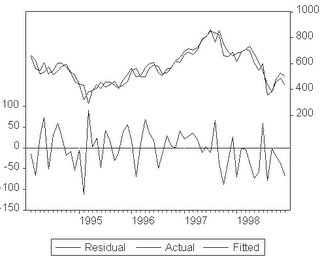
YES. It is. "A must" for all economists that are taking the path of the grad school. and like most things in this period, it is probably going to be a self-taught class. For me it is hard: no serious background in statistics and econometrics from my previous bachelors in Romania, where Business and Economics become congruent and the emphasis is one the former since: a) it is easier to draw management diagram and matrixes that don't mean much at all empirically b) people are going for the cash vs. the science (in most cases). But, naturally, econometrics is universal, has different names for different fields, etc. and it is also used in the business environment (the smart and big ones, at least; because they care and they can do it).
Getting back to the issues at stake here, a small step for mankind, probably, but a giant one for me, to try and understand so many new concepts (like ergodicity, martingales,etc) and methodological issues (Chow, Wald tests..etc) that are totally new and hard to grasp from a kind of technical grad book like Hayashi (http://www.pupress.princeton.edu/chapters/s6946.pdf). But I guess that is the "fun" in grad school that everyone is talking about. He-he:)
Bottom line: I do appreciate it more now and I think it is interesting to push yourself as far as you can; you gain a lot and it feels good to look back and see your progress in such short time. Felt the same about micro; the neoclassical hardcore stuff. Nowdays the battle is to shift this old paradigm into something more general and updated to our new, conscious realizations of the systems (entropy, underestimated externalities, unlimited growth myth, qualitative growth vs. quantitative one, etc) But that's another topic.




No comments:
Post a Comment